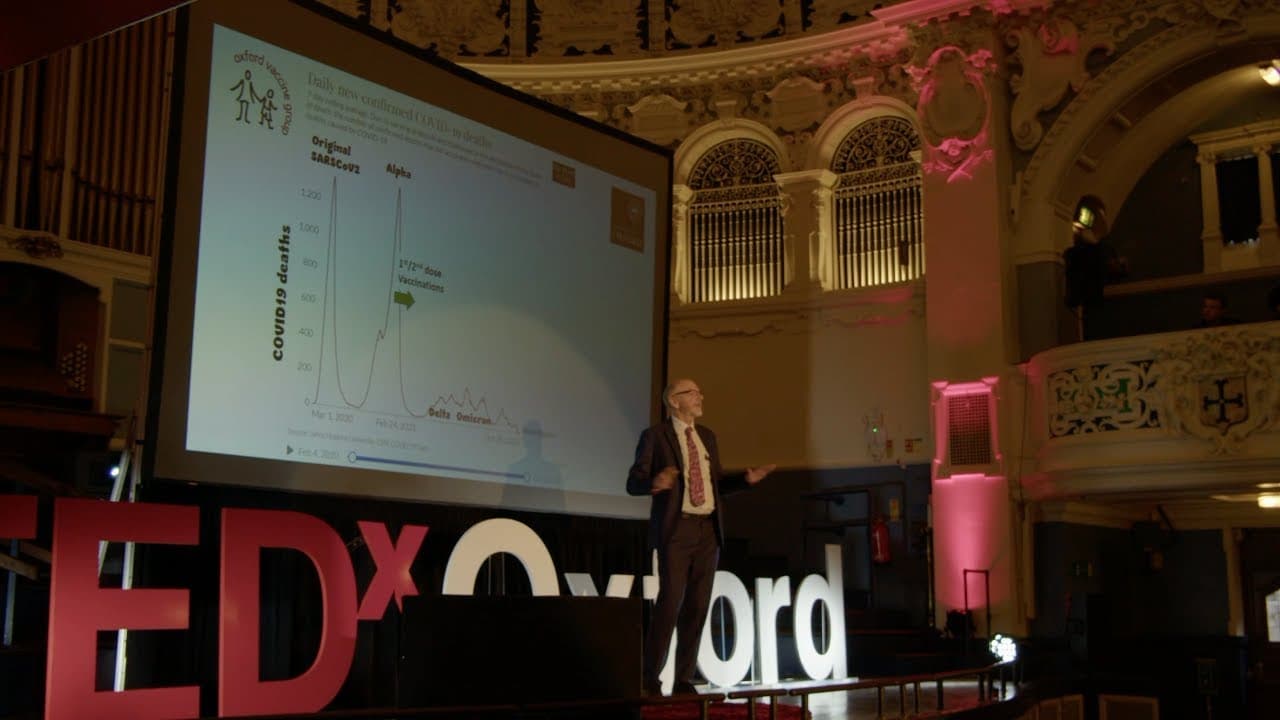Are We Prepared? | Andrew Pollard | TEDxOxford
16 Apr 2024 (over 1 year ago)

COVID-19 Pandemic
- The COVID-19 pandemic, caused by a novel coronavirus, emerged in January 2020.
- Mathematical models predicted the virus's spread, enabling governments to implement social distancing measures and lockdowns.
- Vaccine development, building on previous research, led to the rapid creation of the Oxford-AstraZeneca vaccine in 11 months.
- Clinical trials with thousands of volunteers across three continents were conducted during the global lockdown.
- The vaccine was approved in over 180 countries and distributed worldwide, with 3.5 billion doses supplied.
- The combination of vaccines in the UK significantly reduced COVID-19 mortality, ending pandemic deaths in the country.
- The global vaccine program saved an estimated 14 to 20 million lives in 2021.
Historical Context
- The Black Death, a pandemic in 1348, killed between a third and a half of the European population, an estimated 200 million people.
- COVID-19, in comparison, was a relatively mild pandemic.
Vaccine Development and Success
- Vaccine development for coronaviruses began 20 years ago.
- Only a handful of the 350+ COVID-19 vaccines in development have been successful.
- Vaccines have drastically reduced the number of cases and deaths from diseases like measles and diphtheria.
Challenges and Future Preparedness
- Climate change is driving the spread of some viruses into new territories, increasing the risk of pandemics.
- The world's population is expected to reach 10 billion by 2050, further increasing the risk of disease spread.
- The G7 countries have pledged to deploy vaccines and treatments for future pandemics within 100 days.
- With proper investment and preparation, science can prevail against future pandemics.